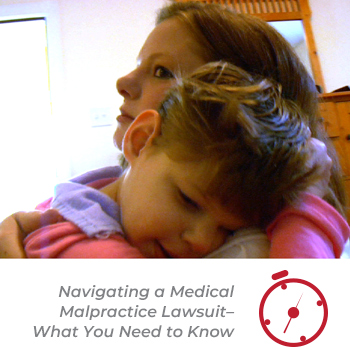
When a medical procedure results in injury or even death, it is natural to wonder if it was preventable. Often, the bad result was not caused by doctors or hospital mistakes. However, in some cases life-altering errors were made, and questions do need to be asked–and answered.
Lizzy’s Case: Her Mom Would Not Give Up
Lisa had a normal pregnancy, but something went terribly wrong during delivery and caused her daughter Lizzy’s cerebral palsy. Lisa was told nothing could have prevented it, or that maybe it was something she did during pregnancy. For months, she had questions. Finally, she called my colleague Ken Suggs to investigate whether a preventable medical error may have caused Lizzy’s condition.
Ken and our medical/legal team at MyAdvocates examined her medical records that the hospital had hidden under lock and key, interviewed witnesses and called in experts. She had a very strong case and won a settlement that will take care of Lizzy for life.
Questions to Determine If You Have a Case
My firm gets calls and emails every day from people who suspect medical malpractice. We listen to their stories and get medical records if we suspect medical negligence. In many cases, the outcome was not the result of any doctor or hospital errors. It is important to ALWAYS ask the hard questions, and let a professional medical/legal team investigate for answers. There is never a charge unless we accept the case and it is successfully settled.
Ask yourself these questions to determine whether you should get legal help:
- Was the injury severe and permanent?
- Are there any past, current, and future costs for medical care to treat the injury?
- Was the doctor or hospital negligent in giving the best standard of care?
- What is the victim’s life expectancy in light of the injury?
- Were any family members impacted by the injury?
Medical Injuries That Almost Always Go To Trial
Some injuries are caused by preventable mistakes and should be pursued as medical malpractice cases. Medical injuries that are most likely to become a case include:
- Death
- Birth injuries, such as brain damage and cerebral palsy
- Delayed diagnosis of cancer or other serious medical condition
- Surgical complications caused by negligence
- Some hospital-acquired infections
This is by no means a comprehensive list. If you feel a medical error contributed to the death or serious injury of yourself or a loved one, seek the advice of a reputable medical malpractice attorney who has both medical and legal expertise.
Also in this section of Howard Janet’s book:
- When a lawsuit is not the way to go, what are the options?
- Injuries related to nursing care
- Cases involving midwives
- Cases of altered documents
You can purchase a copy of Navigating a Medical Malpractice Lawsuit–What You Need to Know from Amazon.
NEXT WEEK’S CHAPTER: Considering a Medical Malpractice Claim? Don’t Miss Deadlines.
